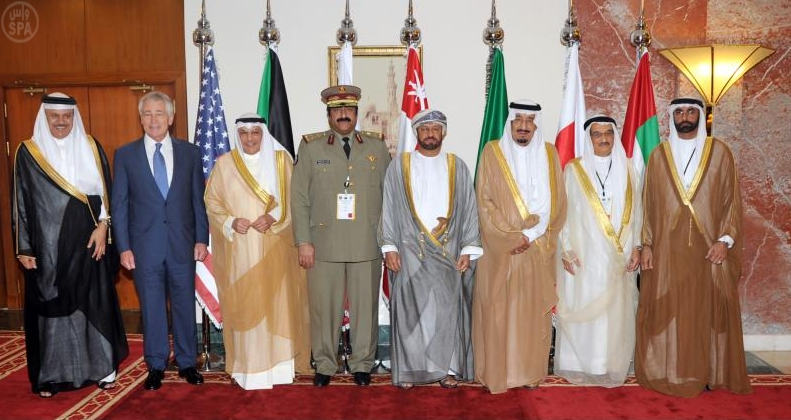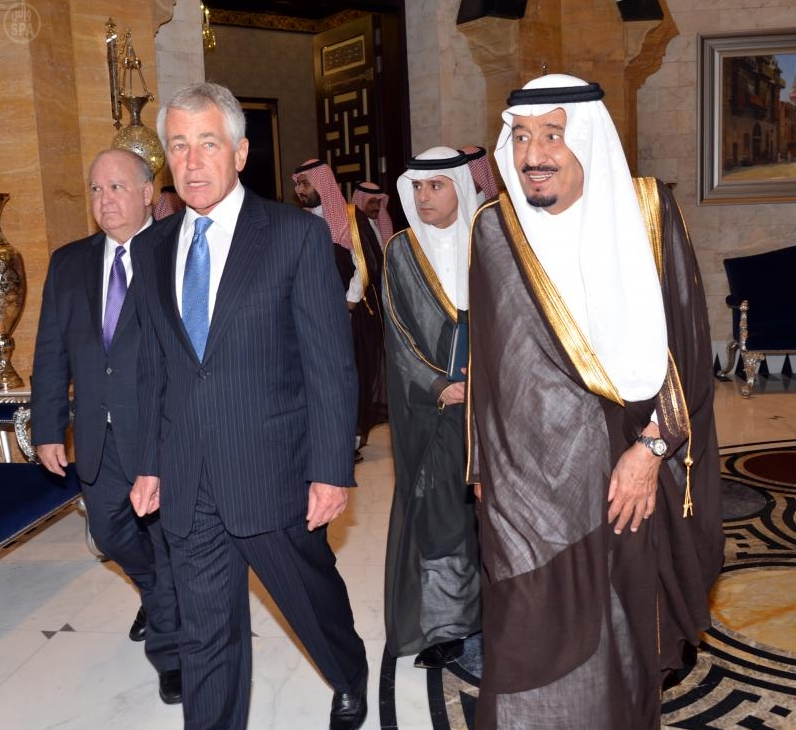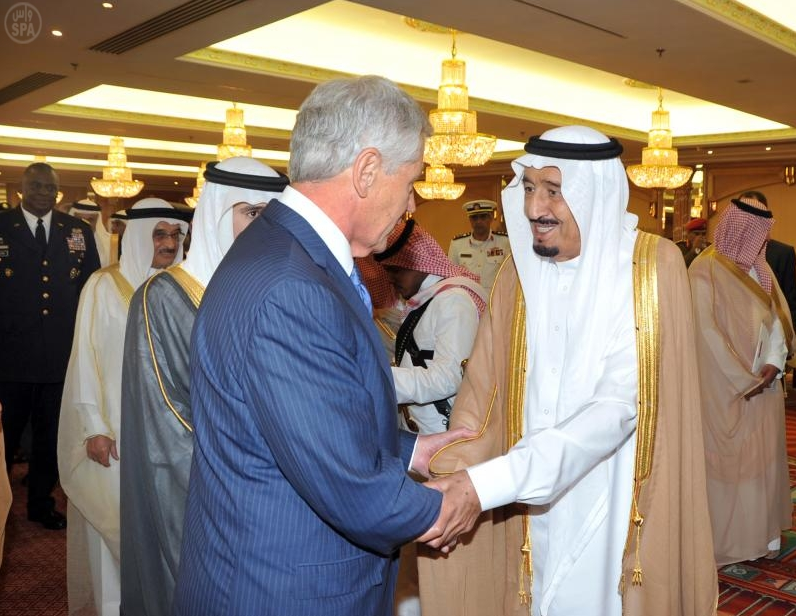Just days before President Obama announced in the White House Rose Garden that his Secretary of Defense Chuck Hagel would resign, Hagel met with Saudi Arabia’s Prince Miteb bin Abdullah – a rising star in Saudi Arabia at the Pentagon.
With Secretary of Defense Chuck Hagel set to resign, all eyes in the Middle East and especially Saudi Arabia are on Obama’s replacement. With an ongoing joint military operation against ISIS and American trainers now on the ground in Saudi Arabia, the choice for Hagel’s replacement will be significant for U.S.-Saudi relations.
Hagel, who went through a bitter confirmation process in the senate and was the lone Republication on Obama’s cabinet, was a frequent visitor to Saudi Arabia, most recently in May of 2014, for a meeting of GCC defense ministers.
Beyond the U.S.-Arab operations against ISIS extremists, Hagel was a key figure in diffusing tensions between the U.S. and its Arab allies on the Iranian nuclear issue. At the May 2014 meeting of GCC defense ministers, Hagel reassured the GCC nations that ongoing discussions over Iran’s nuclear program would not endanger Saudi Arabia’s national security or America’s commitment to it. “While our strong preference is for a diplomatic solution, the United States will remain postured and prepared to ensure that Iran does not acquire a nuclear weapon…These negotiations will under no circumstance trade away regional security for concessions on Iran’s nuclear program.”
In October of 2013, Hagel sat down with The Atlantic‘s Steve Clemons for a wide-ranging interview. In it, he discussed his view on how foreign policy was implemented in the United States from the perspective of the defense department:
“[O]ur role is not—is not to lead foreign policy. Our role is—is an instrument of foreign policy. Our role is input in the National Security Council. And we give the president our best advice on military affairs and so on. But at the end of the day, whatever foreign policy the president decides on, then our responsibility is to review if it includes any kind of military option. And then we will carry that out. And he has confidence, the country has to have confidence, that we will employ whatever option the president decides.”
Hagel’s replacement is likely to face a tough nomination fight in Congress, now under Republican control. Sen. John McCain, who had difficult questions for Hagel during his confirmation hearings, will lead the Senate Armed Services Committee during the process.











